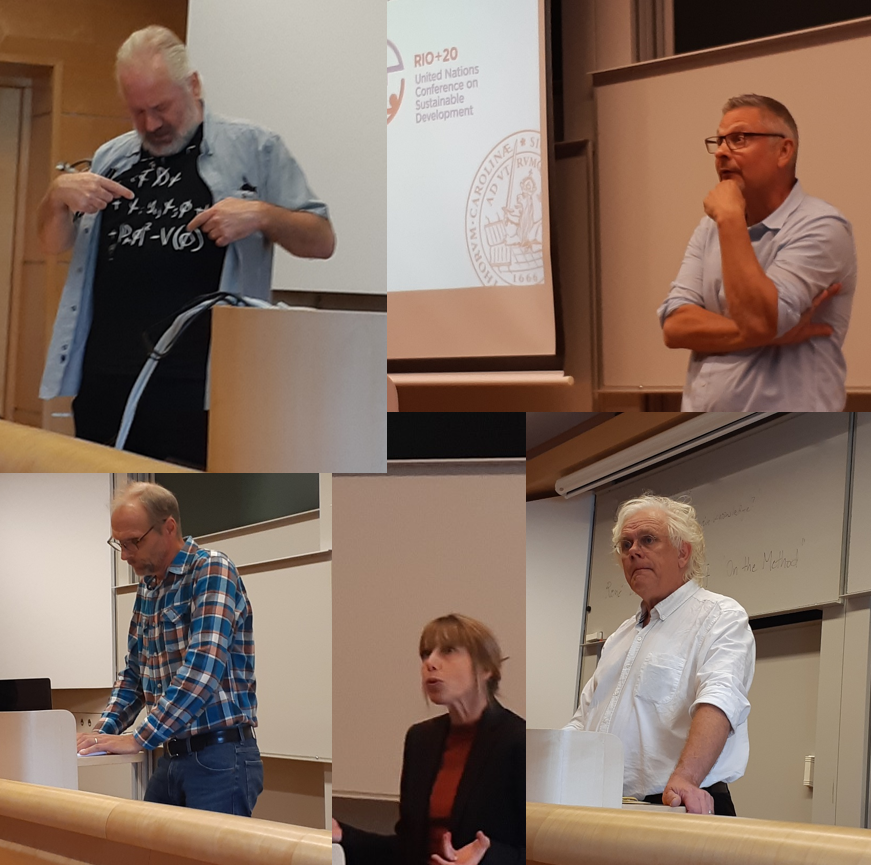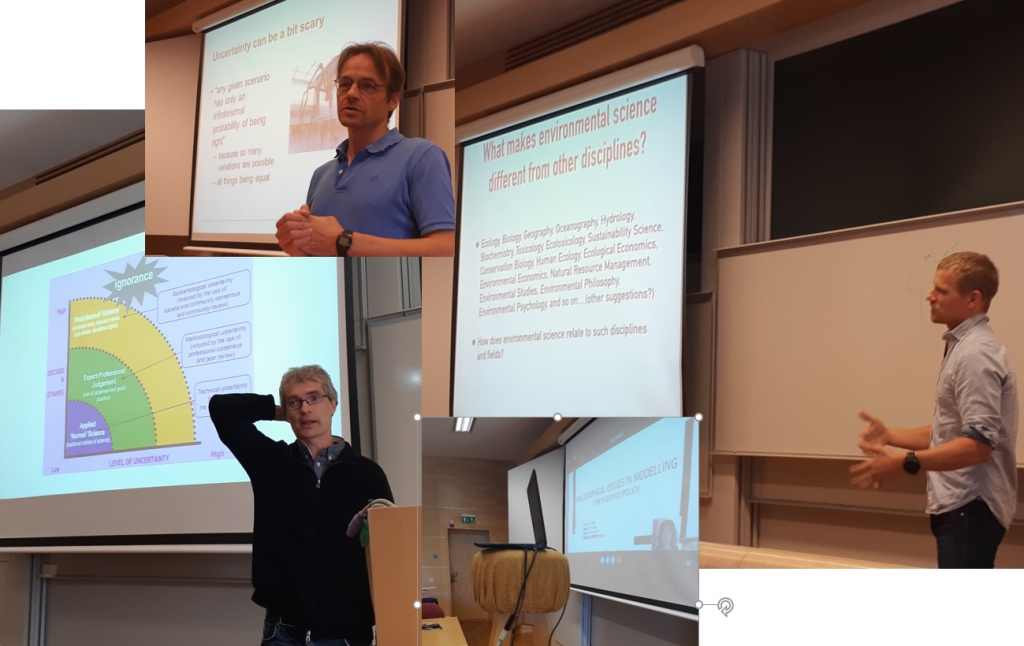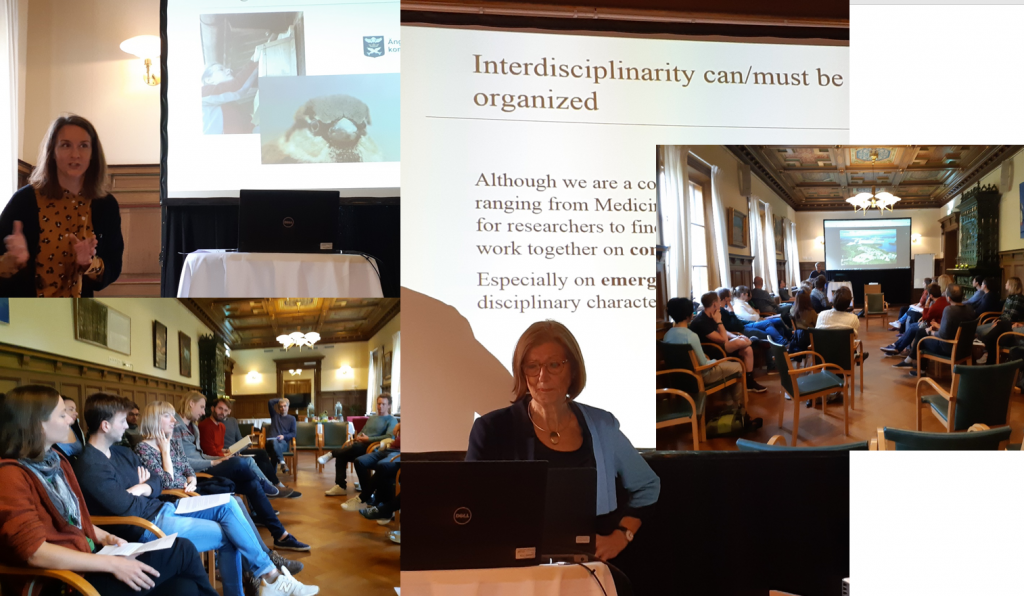This course on 3 credits is given as part of the Environmental Science Graduate Studies at Lund University and the research school ClimBEco.
Last day to apply was 15 September 2019
Course Syllabus NMV001F-Eng
Contact: Ullrika Sahlin
1st of .October – Theme Philosophy of Research in Environmental Science and Social Sciences
All lectures are given in Lundmarksalen
11 – 12 Environmental Science – Ullrika Sahlin, Lund University Centre for Environmental and Climate Research, and Henrik Thoren, Philosophy, Helsinki University
12 – 13 Environmental Psychology – Maria Johansson, Environmental Psychology, LTH
Common lunch
14 – 15 Social science – Lars Harrysson, School of Social Work
15 – 16 Sustainability science and transdisciplinary – Barry Ness, Lund University Centre for Sustainability Studies (LUCSUS)

2nd of October – Theme More perspectives on Philosophy of Research in Empirical and Computational Sciences and Interdisciplinarity
All lectures are given in Lundmarksalen
9 – 10 Physics – Leif Lönnblad, Department of particle physics
Coffee
10:30 – 11.30 Philosophical perspectives on computer models when used for policy or as evidence – Wendy Parker, University of Durham (via link)
11:30 – 12 Models and scenarios: know thy assumptions – Markku Rummukainen, Lund University Centre for Environmental and Climate research
Fix your own lunch
13.00 – 15 Natural science – Per Lundberg, Department of Biology
15 – 16 Interdisciplinarity Research – Miles MacLeod, University of Twente, Netherlands

3rd of October – Interdisciplinarity and self-reflection
Biskopshuset/Bishops house
9 – 11 Interdisciplinary – Miles MacLeod och Henrik Thoren
11 – 11.30 My experience of going interdisciplinary – Maria von Post BECC postdoc
11.30 – 12 The Pufendorf Institute work towards interdisciplinary research – Ann-Katrin Bäcklund Director of the Pufendorf Institute
Common lunch
13 – 15 Student self-reflection – discussions in groups and reporting back

Examination
Active participation at lectures and seminar and an individual paper/report of self-reflection considering at least one of the themes.
Instructions for self-reflection: Is my research interdisciplinary? How can it be interdisciplinary? What advantages/disadvantages or barriers/drivers would come from making it more interdisciplinary? Refer to the course literature (at least one of the essays in Humprey or Sayer). 2-3 pages of text sent to ullrika.
Literature
Chalmers, Alan F. What is this Thing Called Science? Buckingham: Open University Press 1999.
Humphreys, Paul. The Oxford Handbook of Philosophy of Science. Oxford University Press 2016.
Parker, Wendy S (2017). Environmental Science: Empirical Claims in Environmental Ethics. In The Oxford Handbook of Environmental Ethics. Gardiner, Stephen & Thompson, Allen Oxford University Press. 27-39.
Sayer, Andrew. Realism and Social Science. London/Thousand Oaks/New Delhi: SAGE 2000.
Öberg, Gunilla. Interdisciplinary environmental studies – a primer. Wiley-Blackwell 2011.
Extra material from the Social Science lecture
Gabriel Abend, The meaning of ‘theory’, Sociological Theory 26:2 June 2008
https://onlinelibrary.wiley.com/doi/full/10.1111/j.1467-9558.2008.00324.x
Discussion about Alfred Kinsey
https://ajph.aphapublications.org/doi/pdf/10.2105/AJPH.93.6.894
Introduction to Erwin Goffmans book “Presentation of self in everyday Life”
http://wps.pearsoncustom.com/wps/media/objects/6714/6875653/readings/MSL_Goffman_Presentation.pdf
One of many interesting papers by Ellinor Ostrom:
Gunvor Andersson after seven out of nine rounds of interviews in a long term study “Foster children: a longitudinal study of placements and family relationships”
https://onlinelibrary.wiley.com/doi/full/10.1111/j.1468-2397.2008.00570.x
